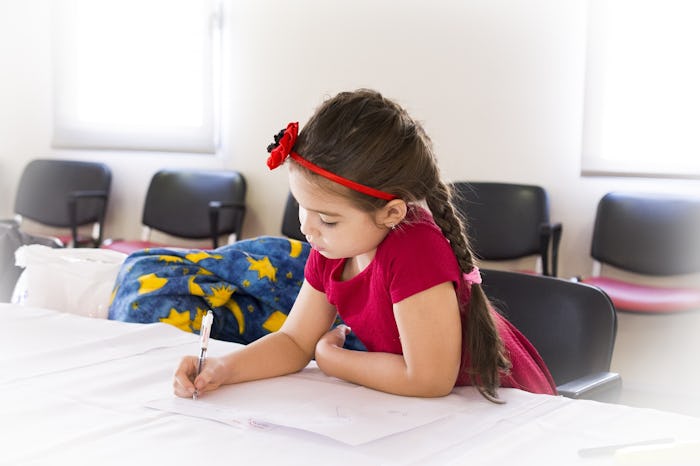You might not be thinking about it today, but sometime in the next two decades, that little baby you are holding will be an adult entering the work force. Because our world is getting smaller and becoming more connected, one of the most in demand skills employers are seeking is bilingualism. The candidates with the greatest chances to succeed will be orally fluent and literate in a minimum of two languages. Anyone who's tried to learn a language as an adult knows that this can be a challenge. So, when can a kid start learning a second language?
There are several schools of thought when it comes to learning a new language. According to the British Council Vietnam, some experts recommend waiting until the child has clear grasp of their native tongue before introducing a new language (after age 4), while others feel that it is possible to be equally proficient in two languages, if both languages are spoken to the child from birth. Monika Schmid, a Professor of Linguistics at University of Essex, wrote in The Conversation about a study she and her colleagues conducted which found that the capacity to learn a new language diminishes gradually over time.
The general consensus is that the "critical period" for language learning closes at puberty. Research by Jürgen M. Meisel at the University of Hamburg published in Zeitschrift für Sprachwissenschaft (Journal of Linguistics) takes it one step further suggesting that the critical period for language learning may begin to close as early as age 5. Catherine Ford, head teacher at Moreton First Prep School in Oswestry, Shropshire England wrote in The Telegraph that she believes that children should start learning a second language at age 3, and exposes her own preschool students to four different languages.
Not all hope is lost for older learners. The National Association for Language Development in the Curriculum (NALDIK) found that, although children are typically better able to master pronunciation and the impression of fluency, adult learners have increased metalinguistic awareness that can enable them to learn a new language more quickly. Schmid's research found that adult learners are good at using a wide range of vocabulary, appropriate style and complex grammar, but tend to have a more difficult time mastering simple grammatical rules than those who learned a second language as children.
Finally, the International Business Times reported on research by Dr. Thomas Bak, from the University of Edinburgh. He studied 835 English native speakers who were given an intelligence test in 1947, at the age of 11, and then again in their early 70s, between 2008 and 2010 concluded that those who spoke another language had better scores in terms of of intelligence and cognitive abilities. The benefits of bilingualism on the aging brain were seen both in people who learned a second language as children, as well as those who picked it up later in life.
So, when can a child start learning a new language, after all? The true answer is that they can start at anytime, but have a greater chance of fluency and retention the younger they begin.
